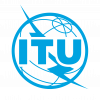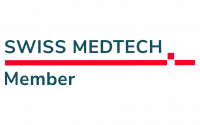BLOG
Telecom26 blog
Telecoms in Malawi: How our IoT SIM cards are being used in digital healthcare programmes

Nicknamed "The Warm Heart of Africa" because of the friendliness of its people, Malawi is a landlocked country in southern eastern Africa. It is bordered by Zambia to the west, Tanzania to the north and northeast, and Mozambique surrounding on the east, south and southwest.
Malawi spans over 118,000km2 (45,747 sq mi) making it the 98th largest country in the world - and just a bit smaller than Nicaragua - although Lake Malawi takes up about a third of Malawi's area. It has a population of just over 19 million.
A former British Colony, Malawi gained independence in 1964 and, according to The World Bank, remains one of the poorest countries in the world with an economy that is heavily dependent on agriculture, which employs nearly 80% of the population. According to U.N. data, about 70% of Malawi’s population lives below the international poverty line of $1.90 per day.
Telecoms in Malawi
The mobile market is dominated by TMN (Telecom Malawi Networks) and Airtel Malawi.
A GSMA report about Malawi states that in 2019 there were over five million unique mobile subscribers in Malawi with 30% penetration. However, Budde research notes that “Mobile penetration remains low in comparison to the regional average and so there are considerable opportunities for further growth, particularly in the mobile broadband sector”.
Telecom26 and IoT Connectivity in Malawi
The UN predicted that the impact of COVID-19 could be ‘disastrously high’ in poverty-stricken Malawi with officials warning that “even a fairly low number of cases could overwhelm the health system, cause food shortages, and reverse the path of progress the country has been on in recent years”.
However, sadly the country has been waging much longer battles against more lethal infectious diseases such as HIV, hepatitis A, malaria, rabies, schistosomiasis (a disease carried by freshwater snails), and typhoid.
One of Telecom26’s long-term customers in Africa, SystemOne, has rolled out TB, HIV, Ebola - and now COVID-19 - testing programmes across Malawi.
Key to the success of SystemOne’s testing programme is reliable connectivity; speed of diagnosis and treatment is often the difference between life and death.
The traditional route is to buy local SIMs to provide device connectivity. Unfortunately, this limits users to one MNO - and adds juggling multiple SIMs across devices to find the strongest local network to a long list of headaches, especially in country border areas.

Telecom26’s IoT SIM cards were developed with the specific goal of improving connectivity in remote areas where coverage can be patchy. Our IoT SIM cards enable devices to automatically access and switch between multiple networks both in-country and across borders thus removing the need to worry about the coverage of a single MNO, or the existence of roaming alliances. Multiple-IMSI profiles are pre-loaded on every SIM allowing for simple remote reconfiguration if the primary network has poor or no service.
SystemOne is currently replacing the SIM cards of one of Malawi’s MNOs with Telecom26’s multi-IMSI global SIM cards. We are delighted to be working with SystemOne and proud to be part of a programme that is improving healthcare for the people of Malawi.
You can read more about our work with SystemOne here.
If you have any questions about telecoms in Malawi, or need help with connectivity there, or in any other country in Africa or around the world then please Get In Touch.



